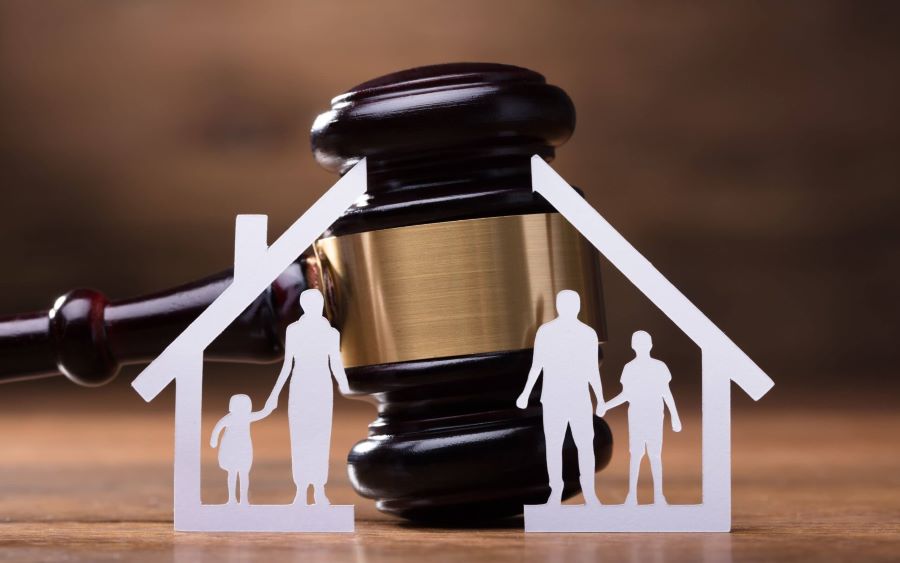(609) 737-3030
The 3 Most Common Divorce Mistakes

The 3 Most Common Divorce Mistakes
In particular, there are three extremely common mistakes that divorcing individuals make which, at first glance, may not even seem like a mistake to them at the moment they are making them. In today's article, we will discuss the three most common divorce mistakes we see during divorce in New Jersey, the reason that they are, in fact, mistakes, and how to avoid making them during your divorce.
“ASKING FRIENDS FOR LEGAL ADVICE”
One of the most serious mistakes we see being made during many divorces is one party or the other taking legal advice from a close friend or family member. Many times a friend or family member may have gone through a divorce themselves, and as such are in a position to give counsel and advice on a variety of aspects related to any divorce. However, New Jersey's matrimonial law is constantly changing, and every situation is different. A great example of this would be when it comes to alimony. New Jersey’s alimony laws changed significantly in 2015 with the Alimony Reform Act, and just because your friend was able to secure “permanent alimony” as a part of their divorce, you may no longer be able to thanks to the changes made to NJalimony laws.
This is just one example of how our laws are constantly changing, and much the same can be said of laws regarding divorce, child custody, child support, and the division of assets. The bottom line is that it is a much more prudent decision to rely on your divorce attorney for legal advice and rely on your friends and family for emotional support and guidance.
“RESPONDING TO THE INITIAL DIVORCE COMPLAINT”
There are many different reasons for these individuals to not want to respond to the complaint, whether it be in hopes of salvaging the marriage or simply the desire to ignore a very serious and stressful issue, but the bottom line is that the matters being decided as part of any divorce inNewJerseyare way too critical and life-changing to not have your unique needs, interests, and concerns represented within your divorce settlement agreement.
If you have received a divorce complaint from your spouse, do not make the mistake of waiting too long to respond to the complaint or ignoring the complaint entirely. Call an experienced divorce attorney, obtain knowledgeable and relevant legal advice, and then make an informed decision regarding whether or not to“contest” the divorce complaint.
“FILING FOR THE RIGHT KIND OF DIVORCE, IN THE RIGHT LOCATION, AT THE RIGHT TIMES”
Finally, it is important to understand that several different types of divorce can be filed for in New Jersey and that depending on your circumstances, the divorce will need to be filed for in a very specific location.
For example, a divorce can be filed for on a “fault basis”, meaning one spouse has committed actions that legally justify a divorce. Or, more commonly, a “no-fault” divorce can be filed for, meaning neither spouse is at fault, simply one spouse or the other believes irreconcilable differences exist within the marriage and that this difference or differences should cause the marriage to end. These two types of divorce have specific requirements that need to be met, and if you begin the divorce process and it is later determined that you or your marriage do not meet these requirements, your divorce may be denied and you will have to begin the process over from the beginning.
In addition, there are strict laws in place that determine in which town/courthouse your divorce should be filed for, and again here a misfiling can lead to your divorce being dismissed and having to begin the process anew. In New Jersey, a divorce must be filed in the county courthouse of the town where the reason for the divorce occurred. For example, if you are citing an “irreconcilable difference” to file for a no-fault divorce, you must file for the divorce in the county courthouse of the town where the irreconcilable difference began to become apparent in your marriage.
If any of your divorce paperwork is filed in the wrong location, or a specific deadline is missed as part of the divorce process, your divorce will most likely be denied by the courts, and you will have to begin the process again. This is just one of the many reasons that it is highly recommended that you consult with an experienced divorce lawyer before even filing for your divorce, as your attorney will be able to help you identify where your divorce should be filed, and help you file all of the necessary paperwork correctly, and on-time.
Categories





